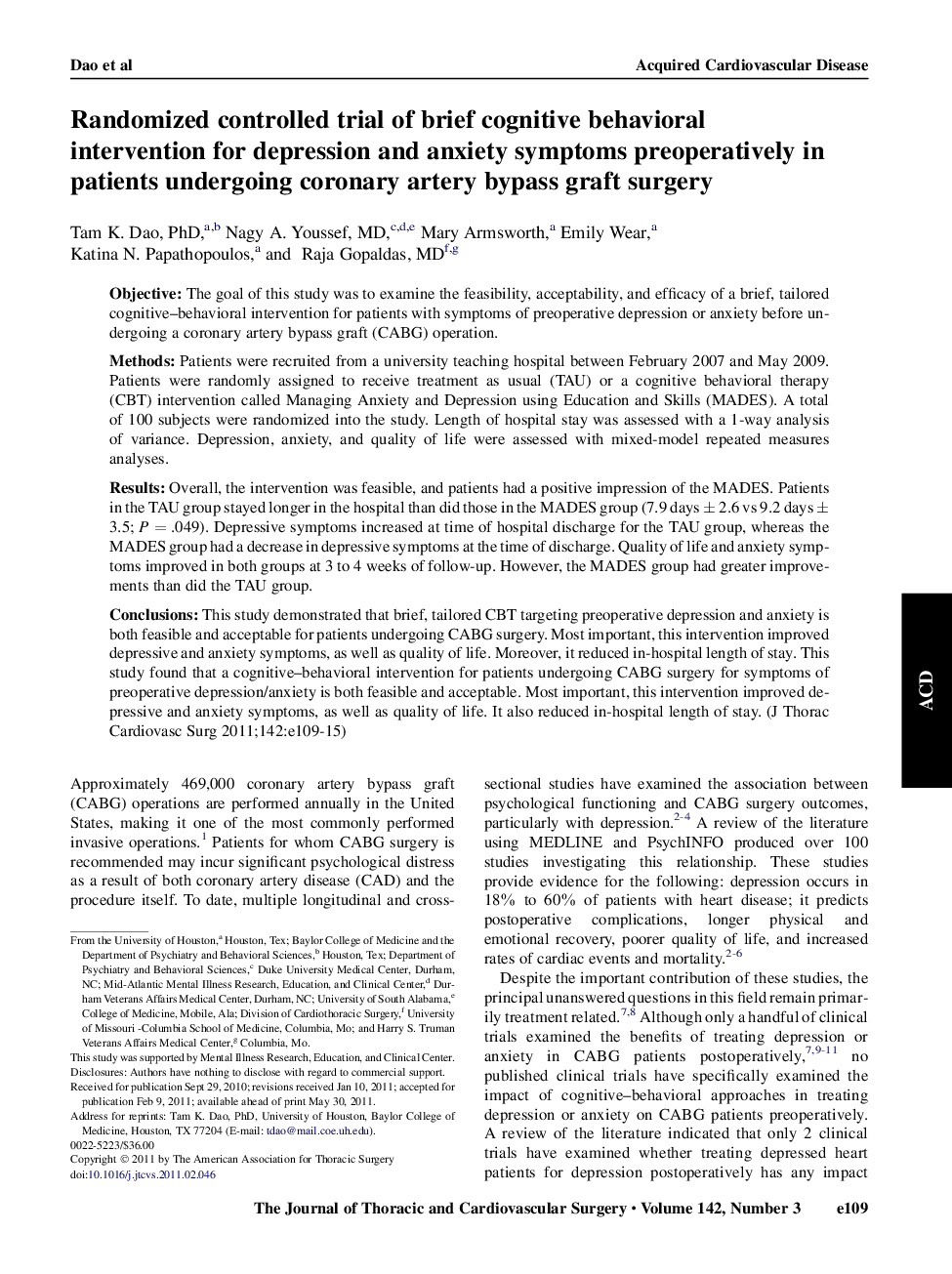| Article ID | Journal | Published Year | Pages | File Type |
|---|---|---|---|---|
| 2982237 | The Journal of Thoracic and Cardiovascular Surgery | 2011 | 7 Pages |
ObjectiveThe goal of this study was to examine the feasibility, acceptability, and efficacy of a brief, tailored cognitive–behavioral intervention for patients with symptoms of preoperative depression or anxiety before undergoing a coronary artery bypass graft (CABG) operation.MethodsPatients were recruited from a university teaching hospital between February 2007 and May 2009. Patients were randomly assigned to receive treatment as usual (TAU) or a cognitive behavioral therapy (CBT) intervention called Managing Anxiety and Depression using Education and Skills (MADES). A total of 100 subjects were randomized into the study. Length of hospital stay was assessed with a 1-way analysis of variance. Depression, anxiety, and quality of life were assessed with mixed-model repeated measures analyses.ResultsOverall, the intervention was feasible, and patients had a positive impression of the MADES. Patients in the TAU group stayed longer in the hospital than did those in the MADES group (7.9 days ± 2.6 vs 9.2 days ± 3.5; P = .049). Depressive symptoms increased at time of hospital discharge for the TAU group, whereas the MADES group had a decrease in depressive symptoms at the time of discharge. Quality of life and anxiety symptoms improved in both groups at 3 to 4 weeks of follow-up. However, the MADES group had greater improvements than did the TAU group.ConclusionsThis study demonstrated that brief, tailored CBT targeting preoperative depression and anxiety is both feasible and acceptable for patients undergoing CABG surgery. Most important, this intervention improved depressive and anxiety symptoms, as well as quality of life. Moreover, it reduced in-hospital length of stay. This study found that a cognitive–behavioral intervention for patients undergoing CABG surgery for symptoms of preoperative depression/anxiety is both feasible and acceptable. Most important, this intervention improved depressive and anxiety symptoms, as well as quality of life. It also reduced in-hospital length of stay.
